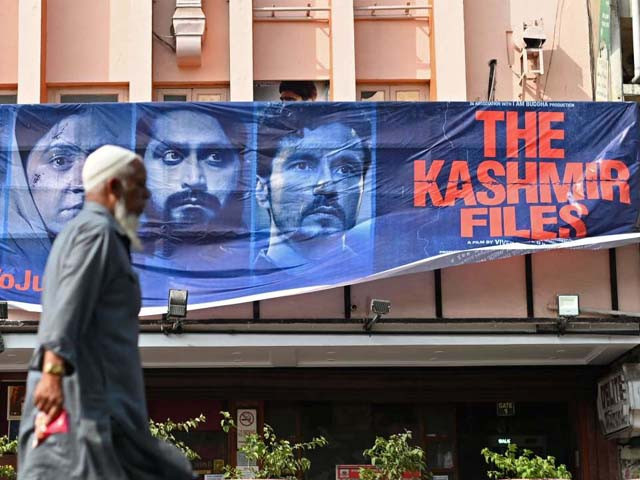The movie The Kashmir Files has recently taken India by storm. One of the most interesting responses to the movie was by an Indian Hindu man in a theatre who could not contain his emotions. Instead of lashing out at Muslims or Pakistan, he used strong words against "secular Hindus". His honest words reflect a narrative of those Pakistani Muslims who are willing to ‘accommodate’ non-Muslims but rail heavily against ‘liberals’. Hence, it can be argued that if some Pakistanis do not like what they see happening in India, it is because they are only looking at a mirror.
The overwhelming response to Kashmir Files in India reflects a Hindutva awakening that had perhaps been buried by the thin veneer of the “largest democracy” label over the decades. However, this facade is increasingly being replaced by a brazen display of Hindutva politics which may eventually lead to India becoming a Hindu Republic. Maybe this is the reality of the Indian subcontinent where, despite hundreds of years of Hindu-Muslim co-existence, the two communities now appear to be irrevocably split. It seems that the fusion experiments of the likes of Guru Nanak, Kabir and Amir Khusrau among others have been oddities in light of the resurging Hindutva in India and Islamism in Pakistan.
While some may try to blame the British for accentuating this communal difference, it is equally true that Hindu-Muslim stereotypes and grievances against one another seem to go back to Mughal times instead of the British. It is also true that as India exports beef to the Middle East and has retained good relations with Iran, Afghanistan and Uzbekistan (where Babar emerged from to found the Mughal dynasty), it is fraught with cow lynch mobs and systemic discrimination against Muslims in housing societies. In other words, the Hindutva narrative channels rage not against the places from whence emerged past invasion and plunder but towards their fellow Indians. Similarly, it appears that the greatest prejudice in Pakistan is reserved for Ahmadis.
Contrary to stereotypes, religious fanatics are not necessarily madrassa students or temple monks. They are instead educated, well-paid individuals who weave a narrative to sway others into their stranglehold. Consider for instance the Bulli Bai App, which targeted Muslim women, was created by university students in India. Similarly, much of the anti-Ahmadi prejudice in Pakistan is echoed by the youth which supports their prime minister’s decision to sideline Ahmadis like world renowned economist Atif Mian from any position of influence in Pakistan.
Another similarity between Hindutva and Islamism, apart from targeting “Hindu seculars” and “Muslim liberals” respectively, is the latching onto perceived grievances. Just as the Hindutva nurses hundred-year-old grievances against Muslims, Islamists offer an overwhelming narrative that Muslims are being persecuted across the world. In essence, the narrative is one of complaint instead of a desire to help bring change. In both instances, selective half-truths are presented to project one’s perpetual victimhood at the expense of denying, minimising or sidelining the suffering of others.
It is this selective projection of pain that has been crafted by the upper-class Brahmin director of The Kashmir Files, Vivek Agnihotri. The Pakistani analogy would be that of a Sunni Muslim director who ignores the suffering of the Ahmadis, the forced conversions of Hindu girls in Sindh, the terror struck on Christians through blasphemy laws in Punjab, and instead projects Sunni Muslims as victims and presents Ahmadis as vicious villains without any humanity. Such a director would be called out as a cheap propagandist. But in an age of the corporatisation of education and cheap sound-bites, the world is full of incompetent people who can’t think critically enough to save their humanity from jingoism.
Indeed, the masses and internet trolls are but pawns of the much craftier and more intelligent narrative weavers who make millions at their expense by toying with their emotions and instigating them towards mob violence and mayhem through their poisonous narrative. And as such, Hindutva is but a mirror image of Islamism.



COMMENTS
Comments are moderated and generally will be posted if they are on-topic and not abusive.
For more information, please see our Comments FAQ